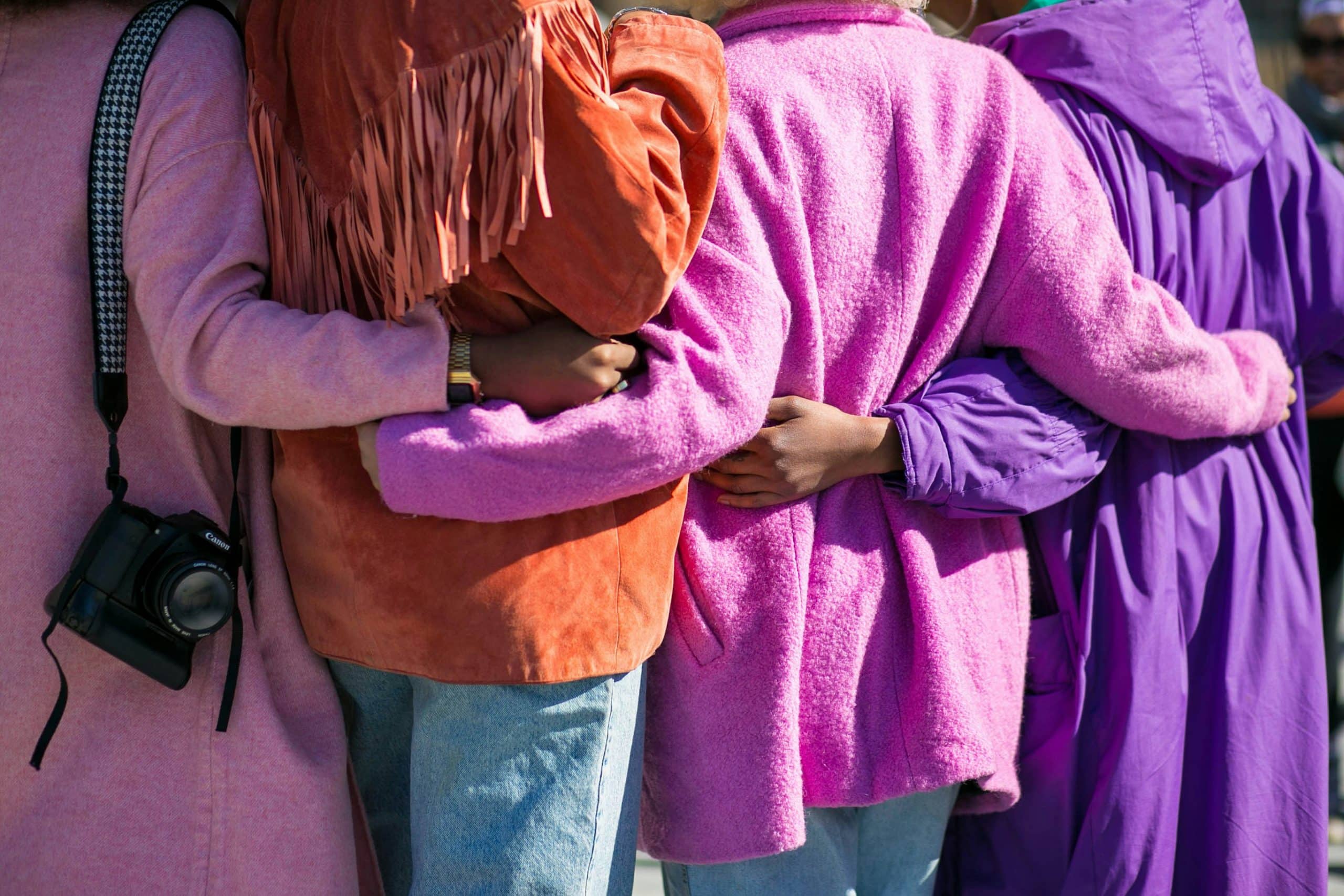Carried along by the river, on the edge of death, Deek relives a terrible moment from his past – even as rescuers search for him desperately.
Previous Chapters: Part 1 | Part 2 | Part 3 | Part 4 | Part 5 | Part 6 | Part 7 | Part 8 | Part 9 | Part 10 | Part 11 | Part 12 | Part 13| Part 14 | Part 15 | Part 16 | Part 17 | Part 18 | Part 19 | Part 20 | Part 21 | Part 22 | Part 23 | Part 24 | Part 25 | Part 26 | Part 27 | Part 28| Part 29
* * *
“So I swam, striving for the shore, and the great wave carried me on.”
— Homer, The Odyssey
Leaking Light and Heat
Deek was as helpless as a leaf, pushed along by the frigid, fast-paced current. He was on the verge of drowning, but had not yet given up. At times, he sank beneath the surface, but always he kicked up again, pawing at the water, craning his head to suck in a lungful of life-saving air. He’d swallowed a lot of water already, and the brackish taste was thick in his throat.
At times, he didn’t know why he kept fighting. Why not surrender to the hungry, sucking river, and let himself be taken away to a place where, whatever his life might be, it would not consist of lonely hotel rooms and lost friendships? He could not feel his extremities. He felt as if his hands and feet had been severed, and his life’s energy was flowing out of the stumps, flowing into the river’s black current.
At other moments, he remembered what Rania had said to him that night in the car, parked outside the hospital:
“If my love for you on our wedding day was hot and passionate, then it is a still burning flame, as powerful as ever. I’m trying to hold on to you, but it’s like holding on to an electric eel. You have to do your part as well.”
She was right, he was an eel, because didn’t eels live in the water? And here he was, dying in water just as he’d been born from it. She was right as well that he had not done his part. If he survived this, he would do his part and more; he would.
Lion of Love
He could not die letting his beloved wife think that he did not love her and want her. He could not die without apologizing to her for his intransigence, stubbornness, and lack of gratitude. So he kept his mouth shut like a spaceship’s air lock, lips pressed tightly together in spite of the burning in his lungs, because he knew that if he were to open it and take that icy water into his lungs, he would be finished. His life belonged to Allah, and Allah would take it or spare it as He willed, but in the meantime, Deek would fight like a cornered lion. In his waking dream, Rabiah al-Adawiyyah had called him Lion of Love, and so he would be.
 He’d once seen a video of a lion in Africa being hunted by a man with a rifle and his team. They pursued the lion into the bush, fanning out and beating the bushes. There came a point, however, when the lion had had enough, and decided to make a final stand. He came charging out of the bush, running straight for the hunter, ignoring the beaters and support crew. SubhanAllah! The lion knew exactly who his enemy was. The hunter dropped to one knee, aimed, and shot the lion in the head when it was almost atop him, and the lion tumbled to the side.
He’d once seen a video of a lion in Africa being hunted by a man with a rifle and his team. They pursued the lion into the bush, fanning out and beating the bushes. There came a point, however, when the lion had had enough, and decided to make a final stand. He came charging out of the bush, running straight for the hunter, ignoring the beaters and support crew. SubhanAllah! The lion knew exactly who his enemy was. The hunter dropped to one knee, aimed, and shot the lion in the head when it was almost atop him, and the lion tumbled to the side.
Deek despised that hunter, but he lauded the lion for his immense courage and fierce will to live. The lion was all who suffered under the leaden weight of oppression, yet refused to surrender. The lion was the indigenous peoples of the world, the Tibetans, Uighurs, Palestinians, Rohingya… It was Deek himself, and he would not die until he could see Rania one last time.
The river spun him in circles. His wet clothes threatened to drag him into the depths. He struck a man-sized chunk of floating wood, and a sharp edge cut his shoulder. He tried grabbing onto it, but it bobbed away on the current.
Lost Lake
Sanaya struggled through the thick undergrowth along the bank, trying to keep up with Amira. She could hear her younger sister up ahead, calling out for Baba again and again. Every few seconds, her eyes shot to the river and she scanned it, looking for any sign of her father. The water was terrifying. Sanaya had never learned to swim. She had a rich friend, a Muslim girl named Halima, who lived in a mansion with an indoor pool. Halima occasionally threw girls-only pool parties. Sanaya would splash around in the shallow end, but even that made her anxious.
Suddenly, the heavy underbrush disappeared, and she found herself standing on a stretch of evenly cut grass. There were trees and picnic tables. She recognized this place. It was Lost Lake Park. A misnomer, since it was not a lake at all, but a riverside park. Some of the Muslims would hold Eid picnics here. Amira stood on one of the tables, screaming Baba’s name at the top of her lungs.
“Why are we stopping here?” Sanaya asked.
Amira looked down at her. There were tears in the younger girl’s eyes. “I don’t know. I just feel like we should.”
Teeth clenched, Sanaya tried calling her mother again. The call went to voicemail. Then again – same result.
Driving Blind
Rania drove madly up the mountain, now and then glancing at the GPS on her dash-mounted phone. Her back hurt badly, and every turn of the dark, winding road seemed to make it worse. On one curve, the car fishtailed and would have gone over the cliff, except that the rear of the car slammed into a pine tree that grew right on the edge. Rania’s head rocked to the side and hit the window. Needles and pinecones rained down on the car. She moaned, dazed. Her head ached badly, and her vision was hazy. She knew she was concussed.
Her phone had popped out of the mount. She found it on the floor. The screen was cracked, and it was dead. No matter – she had an image of the map in her mind. She pressed the gas to resume the mad dash, but the car had died. She turned the key again and pressed the pedal, and the engine turned over, making a noise like a frog chanting, “raka raka raka,” yet did not start. Pausing for a long breath, she tried to calm herself. She whispered, “Bismillahir Rahmanir Raheem,” then turned the key, and the car started! She was off like a shot, tires squealing in protest.
“Hold on, Deek,” she said out loud. “Wherever you are, I will find you.” Her vision was still gray around the edges, and it was suffocatingly dark out here. She had no map and drove blind, only halfway sure she was going the right way. But when a sudden turn appeared on the left, heading steeply downhill, she hit the brakes and took it. It was not the route that she remembered from the map, but somehow it felt right. It was an old, thinly paved road with cracks and extrusions where tree roots had pushed up the pavement. The car bounced and shook, and Rania feared it might come apart.
Hanging
 Deek could not fight the river. His spirit was willing, but his body was a drained husk. He whispered a prayer in his mind, asking Allah to forgive him, and to welcome him home. Just as he stopped kicking his feet and let his arms fall limply to his side, he seemed to hear his name being called. It was impossible, of course. No one would know to look for him here, and he wouldn’t be able to hear them anyway, out here in the middle of the river.
Deek could not fight the river. His spirit was willing, but his body was a drained husk. He whispered a prayer in his mind, asking Allah to forgive him, and to welcome him home. Just as he stopped kicking his feet and let his arms fall limply to his side, he seemed to hear his name being called. It was impossible, of course. No one would know to look for him here, and he wouldn’t be able to hear them anyway, out here in the middle of the river.
Yet he heard it, and in response, he thrust his arm up out of the water. Impossibly, his hand struck something, and he willed his frozen fingers to clamp shut. With his last molecule of strength, he pulled himself up.
He had grasped a slender, low-hanging tree branch that hung far out over the river. He wrapped his other arm over it, catching the branch in the crook of his elbow. Looking around wearily, almost hopelessly, he saw nothing, for the night was as dark as despair. He knew he didn’t have the strength to hold on for more than a few seconds, so with one hand he undid his belt, pulled it free, and used it to lash his arm to the tree branch. He pulled the belt tight and notched it. With this, exhaustion overcame him, and he lapsed into unconsciousness.
A Risky Plan
“There!” Amira jumped up and down on the table, pointing. “It’s Baba, there, there, there!”
Sanaya peered but could see nothing. A dark shape hung over the river on the other side, maybe ten feet from the far shore. “I think that’s a tree branch.”
“I know that. He’s hanging from the tree branch!”
Amira leaped down, pulled off her shoes and socks, then began to take off her jacket.
“What are you doing?”
“I’m going to rescue him!”
Sanaya seized her sister’s arm. “You don’t know how to swim. Neither of us do. Even if that’s him out there, you’ll only drown yourself.”
Amira struggled, trying to pull her arm away. “Let me go!” Sanaya bear-hugged her, and the two of them fell into the grass, struggling.
Amira went limp. “Fine! You win. What’s your plan, then?”
Sanaya stood and called emergency services, updating them. She got off the phone to see Amira hanging on a long tree branch, jumping up and down to break it off. With a loud crack, it snapped, and Amira screamed as the branch fell atop her.
“What’s this, then?” Sanaya demanded as Amira stood, rubbing a fresh bruise on her forehead.
“You hold one end, I’ll hold the other and wade out into the river.”
Sanaya considered. It was a ridiculous plan, but Amira was right; they had to do something. But she wasn’t going to let Amira enter the water. “You hold one end, and I will wade out.”
Sanaya shucked her father’s heavy jacket, but kept her shoes on. She gasped when the icy water swirled around her legs. “It’s freezing!”
“Then get him out!”
Holding on to the end of the branch, with Amira at the edge of the shore, Sanaya was still far from the center of the river, let alone the far side where her father hung. The water was up to her hips. Letting go of the branch for a moment, she braced herself against the current, removed her hijab, spun it into a rope, and tied one end to the end of the branch. Gripping the other end gave her about another three feet, and she waded out a bit more, hoping the cloth would not tear.
It was hopeless. The water was up to her belly button now, and pulled at her strongly. She was terrified. Her teeth chattered, and her heart pounded in her chest like a ship’s cannon. Suddenly, there was a bit of give to the hijab, and she waved her arms, floundering. Looking back, panicked, she saw that Amira had waded out into the water. She was trying to help Sanaya reach Baba, but it was impossible; he was too far away.
“No!” Sanaya screamed. “Go back!”
Crash
Rounding a sharp, downhill curve, the road opened up into a straight stretch, and Rania saw a long stretch of parkland stretched out along the river. She knew this place. She’d been here for a few Eid picnics. Lost Park, or something like that.
She barrelled into the parking lot too fast, and jammed her foot on the brake pedal, but it was too late. The car hit the curb and bounced. Rania lost control of the wheel, and before she could react, the car slammed into a tree. Rania flinched, turning aside just as the air bag deployed, bashing one side of her face.
Struggling out from behind the air bag, Rania ran toward the river. She saw the scene at a glance: her daughters were in the water! She dashed into the freezing water, seized Amira around the waist, and began dragging her back to the shore.
Cold and Shock
Sanaya had given up on this plan. Fear made her movements jerky as she struggled back toward the shore, even as Amira was wading in deeper. She was startled by a tremendous crashing sound, and saw that a car had crashed into a tree a short way away in the park. Its front end was smashed in, one headlight still shining. Wait… was that Mom’s car?
Astonished, she watched as Mom struggled out of the car and then sprinted toward them. When Mom began to drag Amira out, Sanaya held tightly to the hijab as it went tight. Amira was pulled out of the water, and she followed. Alhamdulillah, she thought. Alhamdulillah, alhamdulillah.
Back on the shore, she lay panting and shaking with cold and shock. Amira was on her feet, talking and pointing.
“Mom,” Sanaya gasped. “Your face!”
“The air bag.”
As her mother began to remove her clothing, Sanaya realized what she meant to do. She sat up. “Mom! What about your back? Can you swim?”
No Pain
“I’ll be fine”, she said. “I can swim better than you can imagine. Listen to me. You two stay out of the water! I will bring your father back, by the will of Allah. Sanaya, get out of those wet clothes. There’s an emergency blanket in the back of the car; use that.”
As she said these words, she stripped to her underwear, knowing that wet clothing would drag her down. Then she dashed into the water. It was very cold. She’d spent countless afternoons swimming in the Tigris, but that river was much warmer than this one.
 She hit the water running. The river’s cold was a living thing, slamming into her chest, stealing her breath for a heartbeat. Her skin recoiled, but her mind did not. She had no space inside her for hesitation or fear. Once the water was up to her waist, she dove in, her body knifing through the surface, and began stroking strongly toward Deek.
She hit the water running. The river’s cold was a living thing, slamming into her chest, stealing her breath for a heartbeat. Her skin recoiled, but her mind did not. She had no space inside her for hesitation or fear. Once the water was up to her waist, she dove in, her body knifing through the surface, and began stroking strongly toward Deek.
She realized for the first time that her back was as free of pain as when she was a child. For weeks, pain had been her constant shadow–every step, every twist, every attempt to work or sleep. Now there was nothing. Her head still throbbed fiercely from the car crash. Her vision pulsed with gray at the edges. But her spine felt straight and strong.
As she hit the center of the river, the current threatened to snatch her away. Rather than waste energy trying to fight it, she let it wash her downstream as she continued to cut across the river. Once she’d cleared the center, she reoriented on Deek. Four breaststrokes, then a breath. She cupped her hands to pull at the water more effectively and kicked hard the whole time.
She saw now that Deek had lashed himself to the branch and hung, either unconscious or dead. Even as she watched, however, the notch on the belt slipped free, and her husband slipped underwater and disappeared. He was gone.
River of Memory
As Deek’s body drifted in the icy river, slipping deeper and deeper down into the blackness, his last thought was of the day they rescued his uncle.
The memory rose out of the darkness like a lantern rising from the sea.
He was nine years old again, sitting cross-legged on the cool tile floor of their Baghdad apartment, a battered wooden checkers board between him and Lubna. She was only four, pudgy-cheeked and bossy. She slapped one of her black pieces onto a red square and said, “Shaikh mat,” though it was the wrong game entirely. Deek tried not to smile.
Their grandmother moved about the kitchen humming an old love song from her youth, something about jasmine and moonlight. The smell of frying eggplant and tomatoes filled the house. Outside, the neighborhood kids were playing football in the alley, their shouts drifting through the open balcony door. It was evening, a warm spring night, and everything was ordinary.
Then the front door slammed.
Ammu Khalid, the eldest brother in the family, stomped in, still in his police uniform, his face tight and angry. He tossed his cap on the couch so hard it bounced to the floor. Behind him came Ammu Tarek, his father’s younger brother, nineteen years old, slender, bright-eyed, wearing the same denim jacket he always wore when he went “out for a walk”—which everyone knew meant plastering pro-democracy, anti-government flyers on electrical poles after midnight. Their father, Uthman, followed quietly, closing the door gently as if trying to balance out the force of his brothers.
The argument began even before the table was set.
“You’re going to get yourself killed,” Khalid snapped, pulling off his boots and rubbing his temples. “And not only yourself.”
“I’m not doing anything wrong,” Tarek shot back. “Loving your country is not wrong.”
“Loving your country is not the same as making yourself a martyr.”
“Someone has to tell the truth!”
“And what about the rest of us?” Khalid snapped. “What about my job?”
“Your job,” Tarek sneered. “Working for Saddam the Butcher. Abu Ghraib is full of ghosts because of him.”
“Keep your voice down! I know all this.”
Grandmother shushed them sharply, setting plates of food on the low dining cloth, but the shush only slowed them for a heartbeat. Soon they were yelling again, Tarek accusing Khalid of cowardice, Khalid accusing Tarek of recklessness.
Baba sat at the edge of the cloth, folding bread into neat triangles. He did not look at either brother, only murmured, “Come, come, enough. Sit and eat. No good ever comes from shouting.”
But they didn’t stop. The fight felt larger than them—like the entire country had cracked down the middle, and the fissure ran straight through the Saghir family.
Deek didn’t understand most of it. In school, he was taught that Saddam was the protector of Iraq, the hero of the Iran War. Posters of the President hung in every classroom. But he’d heard whispers, too—men lowering their voices when certain names were spoken, neighbors who vanished without explanation.
To Deek, all of that felt distant and confusing. What he understood was checkers, drawing, and his father’s gentle voice reciting Quran. And Lubna sticking her tongue out whenever she lost.
 He moved a piece on the board. “Your turn,” he whispered.
He moved a piece on the board. “Your turn,” he whispered.
Lubna didn’t move. She was staring at the adults, her lower lip trembling with confusion and fear.
He leaned close and whispered, “It’s okay. They always fight.”
But that night felt different. Even as a child, he sensed it.
Ammu Tarek stormed out after dinner. Uthman sighed, rubbing his beard. Khalid sat with his face in his hands, his untouched food growing cold.
Rania in the Dark
Rania angled her trajectory to compensate for the current. Her legs kicked hard, arms pulling in long, practiced strokes. The old muscle memory came back as if it had been waiting just beneath her skin. The Tigris had taught her this when she was a girl, spending entire summer afternoons in the water while her cousins shrieked and splashed nearby.
“Deek!” she shouted, but the word broke apart on water.
She saw him then, a dark shape rolling in the current, being dragged inexorably toward a bend in the river. He bobbed once, then vanished.
“No,” she gasped, and drove herself forward, kicking harder. She stopped fighting the current and let it carry her toward her husband. When she reached the spot where she estimated Deek should be, she whispered, “Bismillah,” and dove.
The river was inky black. She could see absolutely nothing. She spread her arms out wide, moving them about. Lungs burning, she surfaced, took a breath, dove again, then repeated the process a third time.
Her fingers brushed cloth. She reached, missed, reached again.
This time her hand slid across his shoulder, then under his arm. She clamped her arm tight on his, and pushed for the surface, kicking for all her life. Breaking the surface, she took great, heaving breaths, then adjusted her position relative to Deek, hooking her forearm across his chest from behind to keep his face above water, just as she’d once seen a lifeguard do in Mosul. His head lolled back against her shoulder, his face gray and slack, eyes closed. She did not know if he was breathing or not, and could not check.
“I’ve got you,” she panted, though he could not hear her. “Wallahi, I’ve got you. You are not getting away this time.”
She rolled onto her side, his weight against her, and began to kick with everything she had, using her free arm to scull and pull. The current fought her for every inch, snatching at them both like greedy fingers.
She set her jaw and kicked harder.
Her vision narrowed to a tunnel: a patch of darker shadow that was the far bank, the dim blur of trees, the pull in her shoulder, the weight of her husband’s body. She could hear Amira screaming, Sanaya shouting something, their voices thin across the rushing water.
She did not answer. All her breath was for swimming.
“Just a little more, Deek,” she told him, though his body did not respond. “Do you remember what I told you? I love you because you never give up. You’re my great Iraqi prince.” She gasped these words using breath she could not spare. But Deek needed to hear it.
Kidnapped
Nine-year-old Deek was awakened deep in the night by pounding fists on the door and the roar of motors outside. He sat up, heart hammering. Lubna cried out in the dark.
Their grandmother ran past the bedroom door yelling, “Wake up! Wake up!”
Uniformed men burst into the house with flashlights and boots. They dragged Ammu Tarek out of bed, tied his hands, hooded him, and shoved him into a transport truck. Their grandmother screamed until her voice cracked. Their father did not move, did not speak—his face was carved from stone.
When the police trucks finally roared away, grandmother fumbled for the phone with shaking hands. She called Khalid.
He arrived before dawn, pale and grim. There was no argument this time, no shouting. Only orders.
“Pack. All of you. One suitcase each. Hurry.”
“What will they do to him?” grandmother demanded.
Khalid’s jaw worked, but no words came.
Then he turned to Baba. “Uthman… I need you. Come with me.”
Deek felt his breath catch. Fear surged through him like electricity. He couldn’t lose his father. He couldn’t.
So he did the only thing he could do. While Khalid and Uthman loaded into the covered jeep, Deek crept out, slipped behind them, and curled up on the floor behind the back seat, pulling a dirty blanket over himself. The engine vibrated through his bones as they drove.
Ambush

They left the city and entered an area of heavy forest by the Euphrates. Khalid unlocked a chained gate with a key that glinted in the headlights. He drove off the road, between trees, until the jeep was swallowed by darkness.
Then came the sound of metal: a rifle being checked and loaded.
Deek peeked from beneath the canvas. Khalid handed their father a pistol.
“I know you’ve never used one,” he said hoarsely. “But tonight you might have to.”
Baba nodded once, though his hands trembled.
Deek followed them on bare feet, shivering in the cold, hiding behind shrubs. His teeth chattered loudly enough that he feared they would hear him.
Just after dawn, a police truck rumbled down the road and through the gate.
Three policemen got out. They opened the back and hauled five hooded men onto the dirt. Even from a distance, Deek recognized the way one of the prisoners stood—a wide stance, the familiar denim jacket, the rangy frame. It was Ammu Tarek.
Deek’s breath hitched. He bit his knuckle to stop the cry rising in his throat.
The policemen forced the prisoners to their knees by the riverbank. Rifles lifted.
At that instant, Khalid stood, shouting something wordless and furious, and opened fire. Baba stood beside him, hands shaking but steady enough as he fired the pistol. Two policemen fell, and one fled into the trees. But not before he fired a wild burst at the prisoners.
Deek saw it in slow motion: One prisoner dropping forward with a ruined skull. Another tumbling backward into the water, and Tarek toppling into the river like a sack of sand.
The other two prisoners tore off their hoods and ran into the forest.
“Get Tarek!” Khalid yelled. Then he ran after the last policeman.
Rescue
Baba sprinted to the river, dove in without hesitation. The water was a heaving brown rush, cold and fast. Deek watched his father surface gasping, dive again, surface, dive again. Each time he came up, his face was more frantic.
Little Deek couldn’t stay hidden. Terror propelled him. He ran down the bank, stumbled into the water.
“Baba!”
His feet sank into cold mud. The water was frigid, pulling at his legs like living hands. The current smelled of silt and diesel, and something metallic.
He couldn’t swim well. But he went anyway.
His father surfaced, choking, dragging Tarek’s limp body by the collar. The current yanked Baba sideways, threatening to twist him under.
Then he saw his son, and his face went white.
“Deek! Get back!”
But Deek didn’t. He splashed toward him, arm outstretched, crying, “Baba!”
Baba reached him, grabbed his wrist, and together—fighting the current, slipping in the mud—they dragged Tarek to the bank. Uthman collapsed beside his brother, applying pressure to the wound in his back as blood pooled darkly beneath them.
Escape
Ammu Khalid returned, muddy and panting, his rifle slung over his shoulder.
“Into the jeep!” he barked.
They laid Tarek across the back seat. Baba climbed in beside him, pressing the wound with both hands. Deek pressed himself into the corner, soaked and freezing, watching his father’s hands turn red.
Khalid drove like a man possessed, through back alleys and farm roads, until they reached a modest home on the edge of town. A dissident leader—a nurse by trade—opened the door, looking terrified. Once he saw Tarek, however, he ushered them inside.
They left him there, not knowing whether he would live or die.
They returned home only long enough to collect their other family members.
That night, hidden behind a false wall in the back of a panel truck, Deek listened to his sister sobbing, to his grandmother whispering prayers, to his mother’s silence. He did not understand everything, but he understood one thing: they were leaving Iraq forever.
Weeks later, they learned that Ammu Tarek had survived and had been smuggled to Turkey. And that Ammu Khalid was dead. The adults told the children it was a car accident.
Years later, Baba told Deek the truth, that Khalid had committed suicide. For a long time, Deek believed that Khalid must have done it out of shame that he betrayed his leader and his colleagues. Or perhaps he knew he might be suspected as the culprit and did not want to be tortured.
It was only in recent years, when the memory came to Deek one day as he was bathing, did it occur to him that Khalid had known where the prisoners would be taken. Which meant that he himself had executed men in just this way. Maybe the shame and guilt of his own deeds finally overcame him. Only Allah knew.
River of Echoes
Now, reliving all of this in his dying moments, Deek’s reality blurred, and he began to think that he was Ammu Tarek. He had been bound, hooded and shot, and thrown in the river, and now here he was, drowning. The cold stole the air from his lungs. The hood clung to his face. Water filled his ears. The river tumbled him end over end.
Hands seized him from behind. Strong hands, gripping his arm, dragging him upward. Then earth beneath him. He was being dragged. Voices shouting, “Deek!” and “Baba!” This confused him. Who was he, really? Was he in Iraq, or somewhere else?
It didn’t matter. He felt himself being drawn away again, but not through water this time. Rather, he was being pulled away from his own body, from the world, from this confusing and lonely existence. He could not decide if this was good or bad.
Dead
As Rania neared the shore, towing Deek behind her, the girls ran into the water and pulled her and Deek out. Rania’s breath heaved in her chest, and her arms and legs felt like spaghetti noodles, devoid of all strength. She let the girls do the bulk of the work as the three of them worked together to have Deek up the bank and onto the grass, where they laid him out on his back.
Quickly, professionally, Rania checked Deek’s vitals. Her hands trembled, but she had done this thousands of times. Deek’s eyes were open, and his body was very cold. He had no pulse, and was not breathing. He was dead.
“No,” she whispered. “You are not dead.” She knew that very cold water could preserve brain function for a long time. She would revive him by the will of Allah.
Rania tilted his head back, swept his mouth clean with her fingers, sealed her lips over his, and gave him five long rescue breaths—slow, steady, forcing the air in, watching his chest for any lift. On the third breath, a small bubble of foam escaped his lips. She wiped it and continued, switching to chest compressions. The girls were weeping beside her, Sanaya hugging Amira tightly, sharing the silvery emergency blanket with her sister.
“Back up,” she told the girls, breathless but firm. “Don’t distract me.” This moment was everything. She placed her hands on his sternum and began pushing. One. Two. Three. Four. Five…
Her elbows locked. Her shoulders burned. Deek’s body gave no response at all.
“Mom!” Amira cried behind her. “Listen—sirens!”
Rania ignored her. Her world consisted of her hands against her husband’s cold chest.
“Come back to me,” she said through clenched teeth. “A burning flame, remember? That’s what you and I have, that’s what we are. A burning flame of love. You never give up, you’re crazy like that. It’s not in your nature to give up. Deek. IT’S NOT IN YOUR NATURE.”
Thirty compressions. She leaned down, gave him two more breaths. More water dribbled from the corner of his mouth, but still no chest movement of his own.
She did another cycle. And another. Her arms were shaking uncontrollably. Her vision pulsed with pain from the concussion. She was about to call Sanaya to come and take over. Rania could coach her, tell her what to do. She could hear the sirens now, loud.
What Did You Say?
“Amira,” she said. “Stop crying and come talk to your father.”
To her credit, Amira did not ask what she should say. She stifled her sobs and dropped to her knees, leaning close to her father’s ear. “Baba, we’re right here. Please, Baba, we need you. You always told me, you and me together until the end of the line, remember? Keep your promise.”
Something shifted.
Rania couldn’t put her finger on it, only that suddenly the world was enveloped in silence. She pressed down hard with the last possible compression she would be able to do—
—and Deek’s entire body jerked beneath her hands.
She froze. “Deek?”
A second later, he convulsed and coughed—a weak, strangled sound that tore itself from somewhere deep inside him. A gush of river water spilled from his mouth, splattering onto his chin and shirt. Then he rolled onto his side in a spasmodic reflex, heaving violently as he vomited water and mud.
“Allahu Akbar!” Rania cried. “That’s it, habibi, let it out.”
Deek gagged again, spit, coughed, then sucked in a ragged, shuddering breath that sounded like wind gusting into a cave. Rania put a hand on his chest and her ear against his mouth. His breathing was irregular—fast, then slow, then stopping for a moment before restarting. His body shivered uncontrollably, muscles spasming under his soaked clothes.
“Sanaya, put the blanket on your father!”
Sanaya draped the emergency blanket over Deek, and Rania pulled her daughters in tightly around him. They huddled together, their bodies forming a cocoon of warmth around his trembling frame. Amira recited Surat Al-Fatiha, while Sanaya said a long dua for protection in times of danger – one that Rania herself did not know.
“Mom,” Amira whispered, crying and laughing at the same time. “He’s breathing.”
“Yes,” Rania said, smoothing Deek’s wet hair back from his forehead. “But he’s not out of danger. Keep holding him. Keep him warm.”
Red and blue lights flashed. Tires screeched in the parking lot. Rania jumped up and pulled her clothes and hijab back on, then returned to Deek’s side.
Her husband sputtered again, a shallow cough, then looked from Rania to his daughters with eyes filled with sadness and confusion. He whispered something low and ragged.
“What did you say?” Rania came close to his mouth. “Say that again.”
“I said,” Deek replied in a voice as rough as sandpaper, “Where am I?”
Rania’s eyes widened with fear. Had Deek suffered brain damage from the lack of oxygen? That was a very real risk.
“You’re in Fresno,” she replied. “On the banks of the San Joaquin River. Can you tell me your name?”
He smiled faintly, even as tremors ran through his body. “I am Deek Saghir, and you are Rania Al-Hassan, my beloved wife. And I’m sorry for everything. I want to come home now.”
Rania didn’t look away from him.
“Deek, you fool,” she said. “You have one heck of a sense of timing.” She took one of his hands, clasped it tightly. “You’re home, habibi. You’re home.”
***
Come back next week for Part 31 inshaAllah – the FINAL chapter of Moonshot!
Reader comments and constructive criticism are important to me, so please comment!
See the Story Index for Wael Abdelgawad’s other stories on this website.

Wael Abdelgawad’s novels – including Pieces of a Dream, The Repeaters and Zaid Karim Private Investigator – are available in ebook and print form on his author page at Amazon.com.
Related:
Asha and the Washerwoman’s Baby: A Short Story
The Deal : Part #1 The Run
The post Moonshot [Part 30] – Two Rivers, Two Lives appeared first on MuslimMatters.org.

 Even conciliatory variations of minority activism, such as the trend led by the preacher Martin Luther King, were routinely vilified as communist subversion not only by reactionary bigots but by many politicians and by officials as senior as Edgar Hoover, the sinister doyen of American security who directed his Federal Bureau of Investigation to use what can only be described as secret-police tactics against civil rights leaders. Unapologetically outspoken activists such as “Rap Brown” were a prime target of Hoover’s “Counterintelligence Program”, often called Cointelpro.
Even conciliatory variations of minority activism, such as the trend led by the preacher Martin Luther King, were routinely vilified as communist subversion not only by reactionary bigots but by many politicians and by officials as senior as Edgar Hoover, the sinister doyen of American security who directed his Federal Bureau of Investigation to use what can only be described as secret-police tactics against civil rights leaders. Unapologetically outspoken activists such as “Rap Brown” were a prime target of Hoover’s “Counterintelligence Program”, often called Cointelpro.


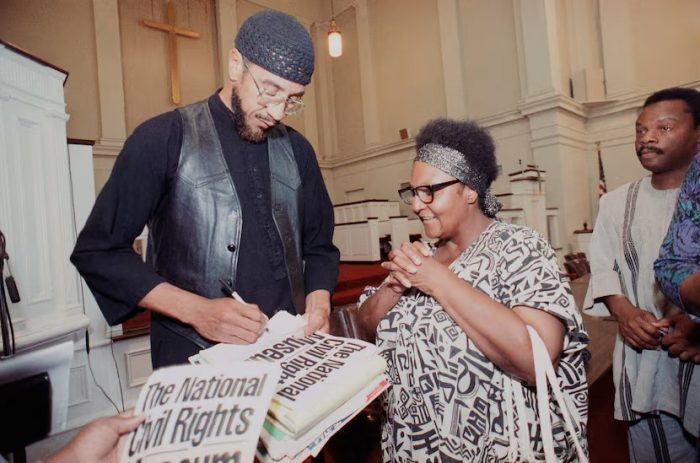
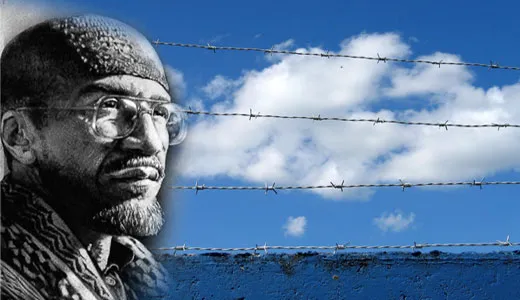









 reward you. Even if you don’t have a wife, you definitely have a mother, and maybe even a sister or daughter. I promise you, this will be relevant.
reward you. Even if you don’t have a wife, you definitely have a mother, and maybe even a sister or daughter. I promise you, this will be relevant. 

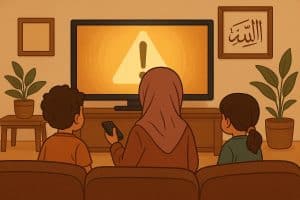
 , they said, was compassionate, tolerant, patient, merciful, endlessly forgiving—more yoga instructor than warrior, more monk than statesman. And so, every Friday sermon, interfaith dinner, and panel discussion circled back to the same soothing line: “What would Muhammad do?”
, they said, was compassionate, tolerant, patient, merciful, endlessly forgiving—more yoga instructor than warrior, more monk than statesman. And so, every Friday sermon, interfaith dinner, and panel discussion circled back to the same soothing line: “What would Muhammad do?” “What is the matter with you that you do not fight in the cause of God and for those oppressed men, women, and children who cry out, ‘Lord, rescue us from this town of oppressors!’” [Surah An-Nisa; 4:75]
“What is the matter with you that you do not fight in the cause of God and for those oppressed men, women, and children who cry out, ‘Lord, rescue us from this town of oppressors!’” [Surah An-Nisa; 4:75]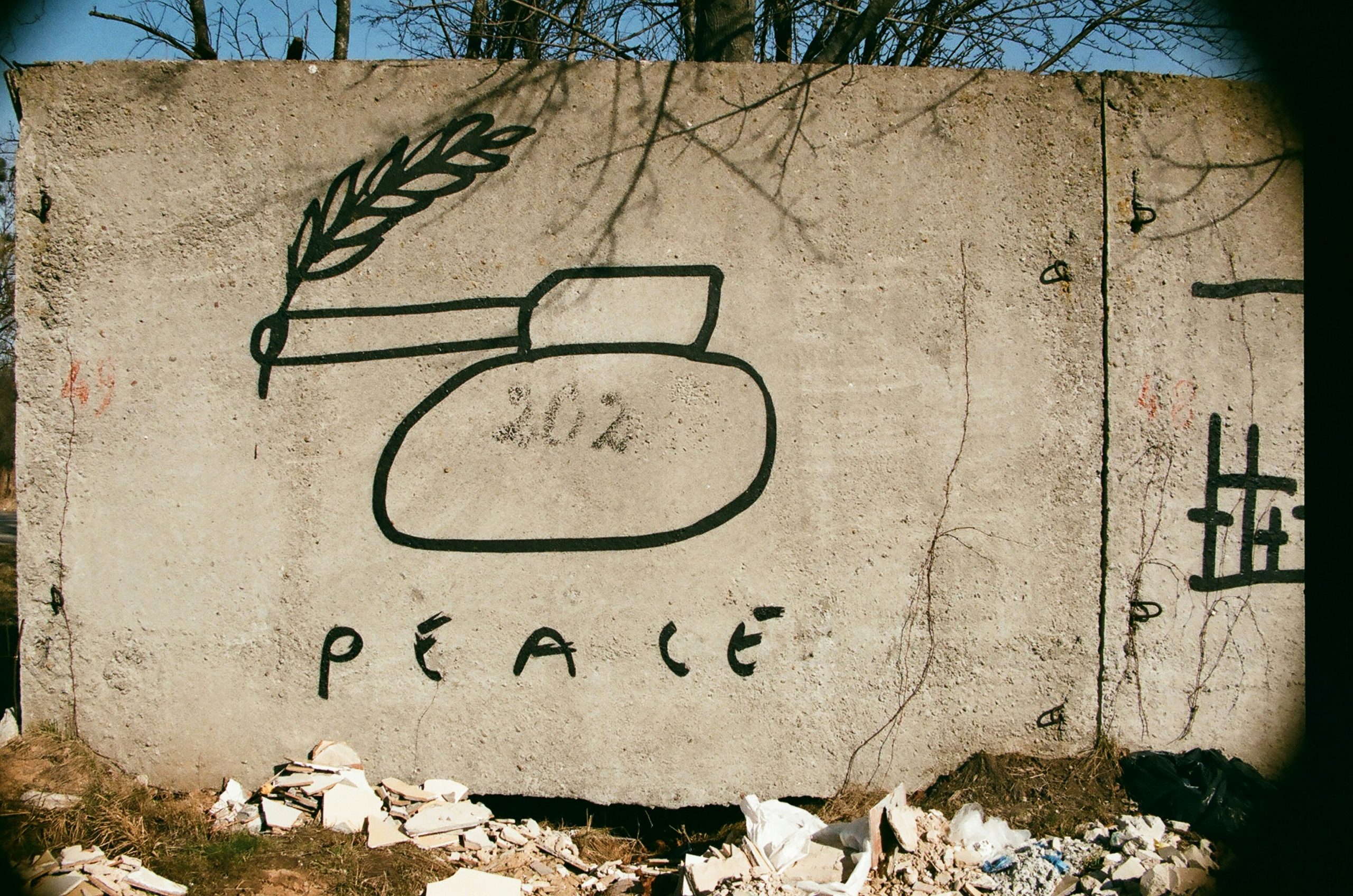




 Then enter the Saja Boys–a group of demons disguised as a boy band that threatens to steal Huntrix’s fans so that their souls can be given to Gwi-Ma. In other words, the lesser jihad against the legions of shayateen wages on in the world around us. It is an “externalization of the destitution of the inner state of the soul of that of humanity,”1, which manifests in the global atrocities and ecological crises we witness daily. Even as we face our own internal issues.
Then enter the Saja Boys–a group of demons disguised as a boy band that threatens to steal Huntrix’s fans so that their souls can be given to Gwi-Ma. In other words, the lesser jihad against the legions of shayateen wages on in the world around us. It is an “externalization of the destitution of the inner state of the soul of that of humanity,”1, which manifests in the global atrocities and ecological crises we witness daily. Even as we face our own internal issues.
 , for example, was a mature woman whose wisdom and dignity were deeply honored. The Prophet ﷺ remembered her long after her passing, saying:
, for example, was a mature woman whose wisdom and dignity were deeply honored. The Prophet ﷺ remembered her long after her passing, saying:

